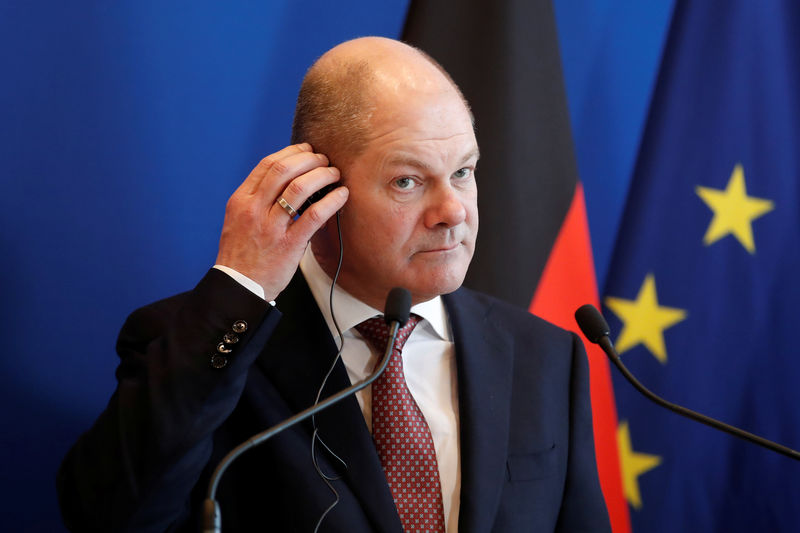Gold prices set for weekly gains on dovish Fed outlook; silver near record high
BERLIN (Reuters) - Germany's finance ministry expects interest rates to rise in coming years, causing new Minster Olaf Scholz to take steps to cushion additional costs to meet budget goals, Der Spiegel weekly reported on Saturday.
"The financial planning up to 2022 (envisages) a necessary normalisation of the capital market environment," Spiegel cited an internal document as saying.
Experts usually see interest rates of between 3 percent and 4 percent as "normal", compared to below zero percent now, reported Der Spiegel.
The European Central Bank's deposit facility is at -0.40 percent while its benchmark refinancing rate is at a record low of 0.0 percent.
German 10-year bond yields, which indicate the country's likely cost of borrowing, fell in March but remain at around 0.5 percent (DE10YT=RR).
Der Spiegel reported that a one percent increase in average interest rates in Europe's biggest economy would mean an additional 10 billion euros in costs which could complicate the new government's efforts to maintain a balanced budget.
A spokesman for the finance ministry declined to comment on the report.
Money markets are pricing in the ECB's first interest rate rise since 2011 next year and the euro zone central bank is also considering how and when to end its 2.55 trillion euro bond purchase scheme aimed at stimulating inflation and growth.
A possible trade war with the United States is a possible dampener on the outlook but German Economy Minister Peter Altmaier told Spiegel he was confident the EU and Washington would "find a sensible compromise by the summer" in trade talks.
Last week U.S. President Donald Trump temporarily excluded the EU, the United States' biggest trading partner, and six other non-European countries from higher U.S. import duties on steel and aluminium.
The higher tariffs are aimed at curbing imports from China. Altmaier said Germany agreed with the United States in wanting to tackle overcapacity in the global steel market, partly caused by China.
"We are looking for a common line in the fight against price dumping and intellectual property theft. We want to find solutions that are compatible with international trade rules," he told Der Spiegel.
